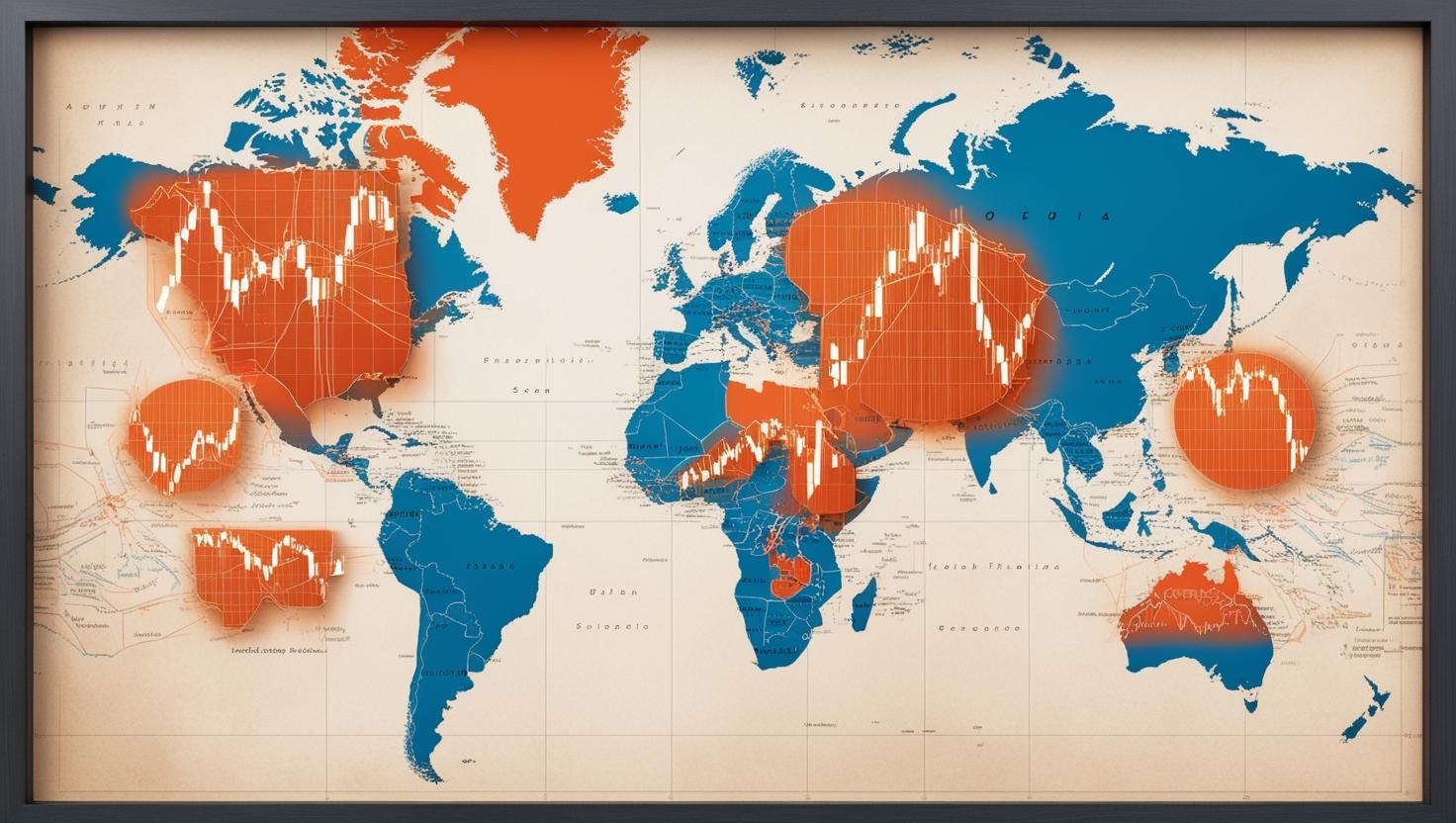08-02-2025
Investment & Portfolio Management
The Influence of Geopolitics on Global Financial Markets
Introduction
Geopolitical events significantly impact global financial markets, influencing investment flows, currency values, stock prices, and economic stability. Political instability, trade disputes, military conflicts, and economic sanctions create uncertainty, affecting investor sentiment and business operations worldwide. Understanding these risks is crucial for investors aiming to navigate volatile markets effectively.
Key Geopolitical Factors Impacting Financial Markets
1. Trade Wars and Economic Policies
- Trade disputes, such as the U.S.-China trade war, disrupt supply chains and corporate earnings.
- Tariff increases raise production costs, slowing global trade and economic growth.
2. Political Instability and Elections
- Elections and government transitions influence economic policies and investor confidence.
- Political uncertainty can lead to capital flight and stock market volatility.
3. Economic Sanctions and Regulatory Shifts
- Sanctions on nations like Russia and Iran restrict trade, affecting global energy and financial markets.
- Stricter regulations can impact business operations and international investments.
4. Global Conflicts and Military Tensions
- Wars and territorial disputes, such as the Russia-Ukraine conflict, increase market instability.
- Investors shift towards safe-haven assets like gold and government bonds during conflicts.
5. Currency Fluctuations and Central Bank Policies
- Governments may manipulate currencies to gain economic advantages.
- The U.S. dollar, euro, and Swiss franc often strengthen in times of uncertainty.
6. Cybersecurity and Digital Threats
- Cyberattacks on financial institutions pose growing risks.
- Governments and corporations invest in cybersecurity to protect global markets.
How Geopolitical Risks Affect Financial Markets
1. Stock Market Volatility
- Political uncertainty leads to market fluctuations and reduced investor confidence.
- Industries like defense, energy, and cybersecurity often benefit, while technology and tourism may suffer.
2. Foreign Exchange (Forex) Markets
- Currency values fluctuate based on trade relations and economic policies.
- The U.S. dollar and Japanese yen act as safe-haven currencies.
3. Commodity and Energy Markets
- Oil and gas prices surge during conflicts and supply disruptions.
- Gold prices increase as investors seek safe assets.
4. Bond and Fixed-Income Markets
- Investors buy government bonds during geopolitical instability, lowering yields.
- Riskier corporate bonds may suffer during economic uncertainty.
How Investors Can Manage Geopolitical Risks
1. Diversification
- Spreading investments across regions and asset classes minimizes risk.
2. Investing in Safe-Haven Assets
- Gold, U.S. Treasuries, and defensive stocks offer protection.
3. Hedging Strategies
- Derivatives, options, and ETFs help reduce exposure to geopolitical shocks.
4. Monitoring Global Events
- Keeping track of elections, trade policies, and regulatory changes helps investors anticipate market shifts.
5. Long-Term Investment Approach
- Markets tend to stabilize after geopolitical disruptions, favoring long-term strategies.
Conclusion
Geopolitical risks are a constant factor in global finance, influencing everything from currency fluctuations and stock volatility to commodity prices and economic growth. While these events create uncertainty, they also present opportunities for investors who strategically assess and manage risks. By diversifying portfolios, hedging against volatility, and staying informed, investors can better navigate the evolving geopolitical landscape.
Source: Financial Times, "How Geopolitics Shapes Global Markets," ft.com

